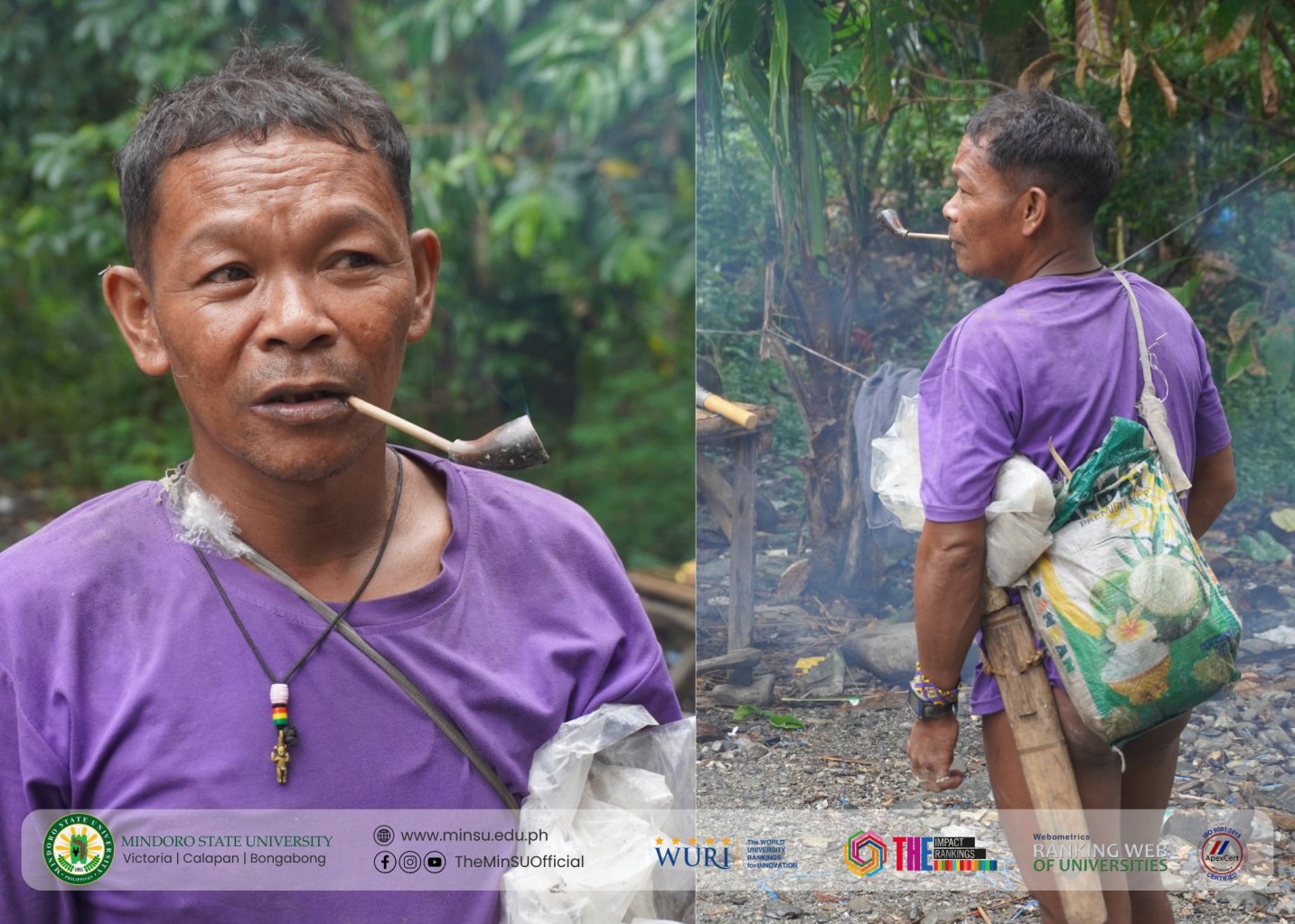
The age-old tradition of crafting kwako, the traditional cigar pipe of the Mangyan Bangon Tribe found new life as Bangon elders passed on their skills to the younger generation in a two-day hands-on training last August 14–15, 2025 at Sitio Bayang, Lisap, Bongabong, Oriental Mindoro.
The activity, spearheaded by Mindoro State University (MinSU) through its STC4iD Project funded by DOST-PCAARRD, formed part of the project’s Handicraft Making component, alongside agriculture and literacy initiatives. With support from partners such as Pampayanang Mangyan Ugnayan, Inc., National Commission on Indigenous People, Local Government Unit of Bongabong, Department of Agriculture-MIMAROPA, and Provincial Agriculture Office of Oriental Mindoro, the training aimed not only to preserve an indigenous art but also to open opportunities for future livelihood and cultural branding of the Bangon community.
Elders as Mentors, Clay as Heritage
Two respected elders volunteered to guide the process, even helping to gather clay from Barangay Batangan, an authentic and sacred source of kwako materials.
Though one trainer, Tatay Balunan, was unable to attend, fellow craftsman Kondeman Mawwinan recruited Nagi-oy Inyaay, another skilled artisan, ensuring that tradition would still be passed on.
Together, they supervised 14 participants - youth, women, and fellow elders, teaching them step by step the delicate and patient art of shaping a kwako. For many, it was their first time shaping clay into a pipe, long associated with the Bangon tribe’s traditions.
Crafting with Patience and Skill
The crafting of kwako unfolded slowly, guided by the steady hands of the Bangon elders. With clay gathered from Barangay Batangan, participants began by kneading and wedging it, pressing out air pockets and impurities while adding just enough water to achieve the right texture and consistency.
“The wedging is the heart of the kwako,” explained Kondeman Mawwinan. “If the clay is not well-prepared, the kwako will crack before it ever holds fire,” she said
Armed with simple tools - two handmade rattans shaped like knives and bent sticks; the participants took their first lumps of clay and began shaping. Gentle taps of bolo blades compacted the clay, which was then scraped and refined little by little with the rattan sticks.
For many, this was the most challenging part. On average, it took about three hours to form just one small pipe. Initially, most of the first molds came out larger than usual, but the elders patiently reminded the group that only two sizes of kwako are traditionally made: small for women and medium for men. The elders also explained that larger molds are impractical for smoking, as they become too heavy for regular use.
By the end of the first day, each participant was able shape at least one mold, since the process demanded hours of patience and precision.
On the second day, the air-dried molds were placed directly into the fire or ember for two to three hours hardening them into usable pipes. Finally, a small bamboo pipe is inserted into the hardened mold, completing the kwako, a piece ready for use.
When the last pipe was lifted from the fire, the participants gathered proudly, holding their creations in their hands.
Beyond Craft: Toward Identity and Livelihood
According to Dr. Mary Jeane S. Lubos, Project Team Leader, the activity was not just merely about pipe-making. It was also about keeping the Bangon culture alive.
“By teaching the youth, the elders made sure this tradition will not be forgotten,” she said.
In the closing program, the facilitators shared plans to improve and innovate the craft so it can be registered as a trademark product of the Bangon tribe. This will not only serve as a cultural identity but also as a source of income for the community.
Through this training, the torch has been passed. As the Bangon youth learn to shape clay into kwako, they are also shaping the future of their heritage ensuring that every puff of smoke carries with it the breath of their ancestors.
#SDG10 #SDG11 #SDG17
302 Staff
10531 Students
9 Colleges
4 Years